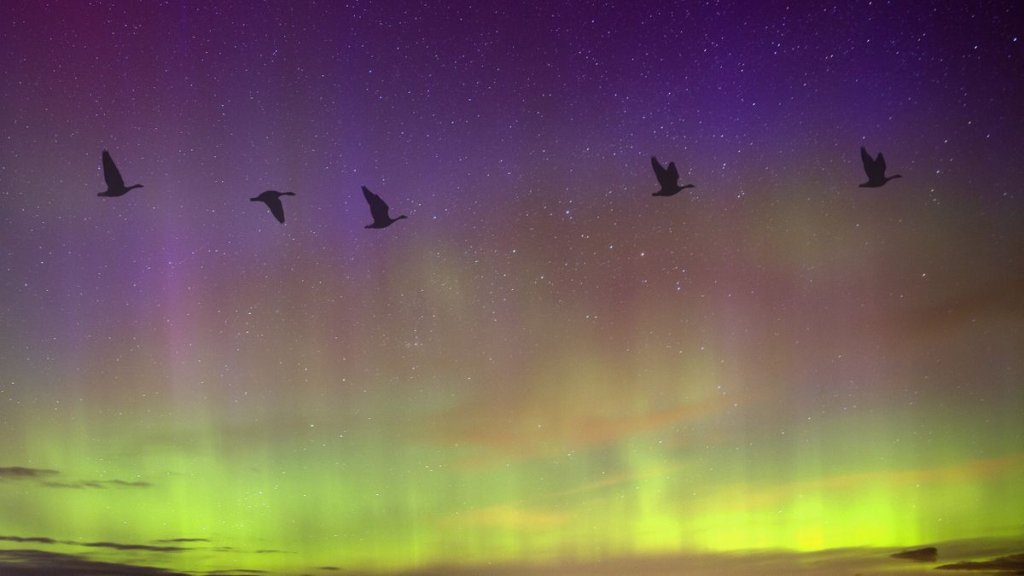
Severe space weather is messing up bird migrations, new study suggests (Image Credit: Space.com)
New research indicates that severe space weather events, such as solar flares, disrupt birds’ navigational skills during long migrations.
Previous research has indicated that when flying at night, birds (and many other animals) use Earth’s magnetic field for navigation. Because solar events disrupt the magnetic field — as well as produce auroras — birds have more difficulty navigating during them.
The new study analyzed images taken from 37 NEXRAD Doppler weather radar stations, which can detect groups of migrating birds, as well as data from ground-based magnetometers, to study 23 years of bird migration across the U.S. Great Plains. The 1,000-mile (1,600-kilometer) span from North Dakota to Texas is considered a major migratory corridor for birds.
Related: How ordinary spacecraft sensors could improve our understanding of space weather
“The biggest challenge was trying to distill such a large dataset — years and years of ground magnetic field observations — into a geomagnetic disturbance index for each radar site,” Daniel Welling, University of Michigan space scientist said in a statement. “There was a lot of heavy lifting in terms of assessing data quality and validating our final data product to ensure that it was appropriate for this study.”
The work paid off. The researchers discovered that the number of migrating birds in this region decreases by 9 to 17 percent during severe space weather events. They also noticed increased rates of birds becoming lost during migration, a phenomenon known as migratory bird vagrancy.

“Our findings highlight how animal decisions are dependent on environmental conditions — including those that we as humans cannot perceive, such as geomagnetic disturbances — and that these behaviors influence population-level patterns of animal movement,” Eric Gulson-Castillo, a doctoral student at the University of Michigan Department of Ecology and Evolutionary Biology, who served as lead author on a study about the research, said in the same statement.
Interestingly, severe space weather events can also throw off human navigation. Solar outbursts affect satellite communications, disrupting technology like GPS. We can expect more extreme space weather events as the sun builds towards a peak in its 11-year solar activity cycle, expected to occur in 2025. But like weather on Earth, space weather is a fickle fellow and predictions can turn on a dime.
The team’s findings were published in Proceedings of the National Academy of Sciences on Oct. 9.
Follow Stefanie Waldek on Twitter @StefanieWaldek.





